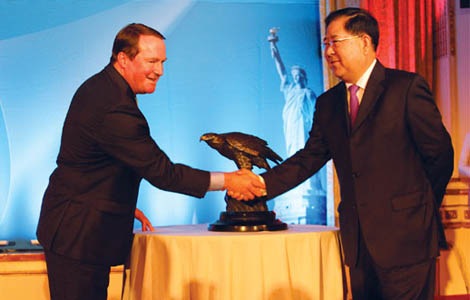Trade shows help Chinese firms to gain a foothold in Brazil
Updated: 2014-08-18 04:14
By ZHANG FAN in Sao Paulo(China Daily Latin America)
|
||||||||
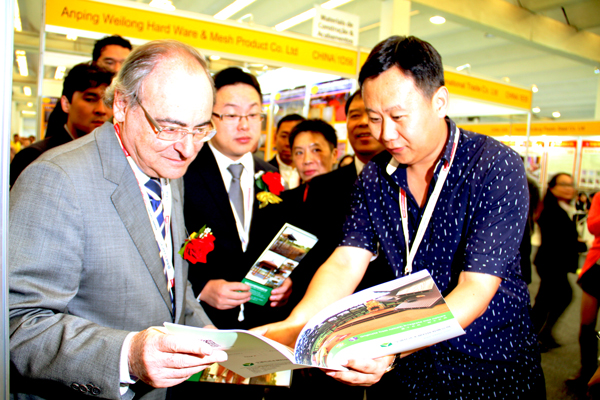 |
|
A Chinese company owner is introducing his products to Luigi Nese (first from left), the president of National Confederation of Services at the China Sourcing Fair held in Sao Paulo on August 11. Zhang Fan / China Daily |
As China and Brazil establish closer economic ties, local governments and organizations from China are participating in more trade shows to introduce Chinese products to potential customers in the Latin American country.
According to a local trade information website, there are about 24 scheduled trade shows that will be held this month in Sao Paulo, with about half including Chinese products.
Brazil is becoming more familiar to Chinese companies especially after hosting the 2014 FIFA World Cup, the sixth BRICS summit, and last month's visit of Chinese President Xi Jinping.
"The deepening mutual understanding between the two countries allows more Chinese companies to eye Brazil as a market with large potential and they want to develop a new option other than traditional international markets such as the United States and European countries," said Yu Yong, the commercial counselor at the Chinese Consulate in Sao Paulo.
The China Sourcing Fair, held last week in Sao Paulo, was one of the largest trade shows that introduced Chinese products to Brazil, with the goods ranging from electronic products to clothes.
"Chinese light industrial products are becoming more welcomed by Brazilian companies these days. We hold such exhibitions to help local companies reach the Chinese partners they are looking for," said Eiko Chih, general manager of Asia Business Consulting & Events Brazil, co-sponsor of the fair.
"The fair attracted a lot of attention from Brazilian consumers and about 27,000 people visited the show last year," said Chih, "I think China and Brazil should enlarge the cooperation in building materials and invite more Chinese companies in this field to Brazil."
Rodrigo Naka, director of CN Acrylics from Sao Paulo, is among the many Brazilian company owners participating in the fair. "I am looking for plastic products and want to meet Chinese companies here," said Naka. "We need ice coolers and we know Chinese products are cheap and we want to learn more about their quality."
This is the third time that Global Sources, a Hong Kong-based business-to-business media company, has held the China Sourcing Fair in Brazil. About 400 Chinese companies came to Sao Paulo to promote their products, including household appliances, gifts and building materials.
"This is my second time to come to Brazil for this fair. Though right now we do not have a large market share in Brazil, I hold high expectations for the future because the country is developing rapidly," said Song Erfeng, president of Anping Jincheng Metal Products Co.
Song's company mainly sells products to build fancies and safety nets, "Our products are of a cheaper price with improving quality. Our sales increased by 8 percent last year because of the fair. I hope we can have more this time," he said.
The company is from Hebei province, located in North China. Though the province is not a traditional international trading area like Guangdong and Shanghai, about five companies participated in the fair this time, all involved in building materials.
"We are getting more interested in the Brazilian markets. We helped many local companies to participate in various trade fairs in Brazil, such as the building material fair held in Sao Paulo this March," said Cui Xiangyong, deputy director of CCPIT Hebei Sub-Council.
Cui said Hebei province started to explore the Brazilian market in 2008 and mainly targets light industrial products. "This market is still needs to be developed. A major challenge for Chinese traders is the language barrier. It will be much easier if Brazilian companies can communicate with us in English which is more common for Chinese than in Portuguese," he said.
fanzhang@chinadailyusa.com

 Brazil-China a 'model' to copy
Brazil-China a 'model' to copy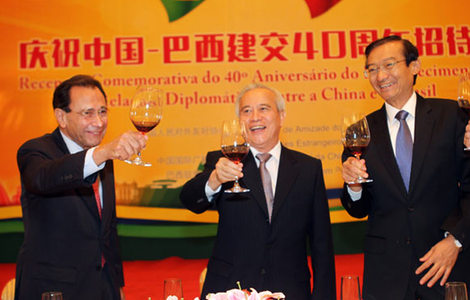
 Unique relation needs further tightening
Unique relation needs further tightening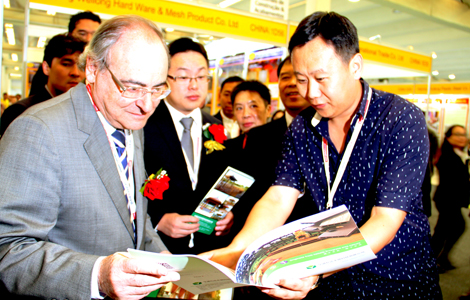
 Trade shows help Chinese firms to gain a foothold in Brazil
Trade shows help Chinese firms to gain a foothold in Brazil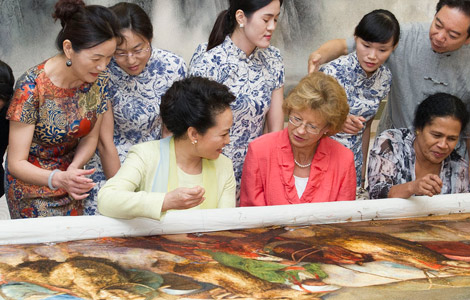
 First lady tours museum with wives of foreign leaders
First lady tours museum with wives of foreign leaders
 Passenger transport starts on Tibet's new railway
Passenger transport starts on Tibet's new railway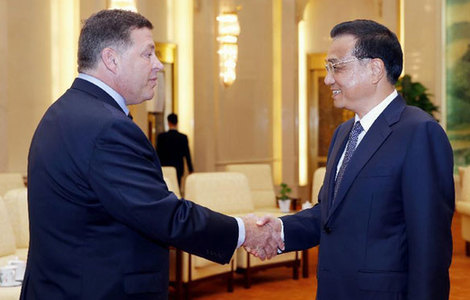
 China to help upgrade US transport network
China to help upgrade US transport network
 Youth Olympic Games kick off in Nanjing
Youth Olympic Games kick off in Nanjing
 Earthquake relief
Earthquake relief
Most Viewed
Editor's Picks

|

|

|

|

|

|
Today's Top News
190,000 people in HK turn up for anti-Occupy march
Ebola outbreak interrupts Chinese companies in Liberia
Macao's Chui unveils political platform for chief executive election
Gov declares emergency, imposes curfew in Ferguson
APEC sets ball rolling for free trade
China's holdings of US securities take a slight dip
China seeks to conduct dialogue with Vatican
China opposes Japan PM's offering to Yasukuni Shrine
US Weekly

|

|

